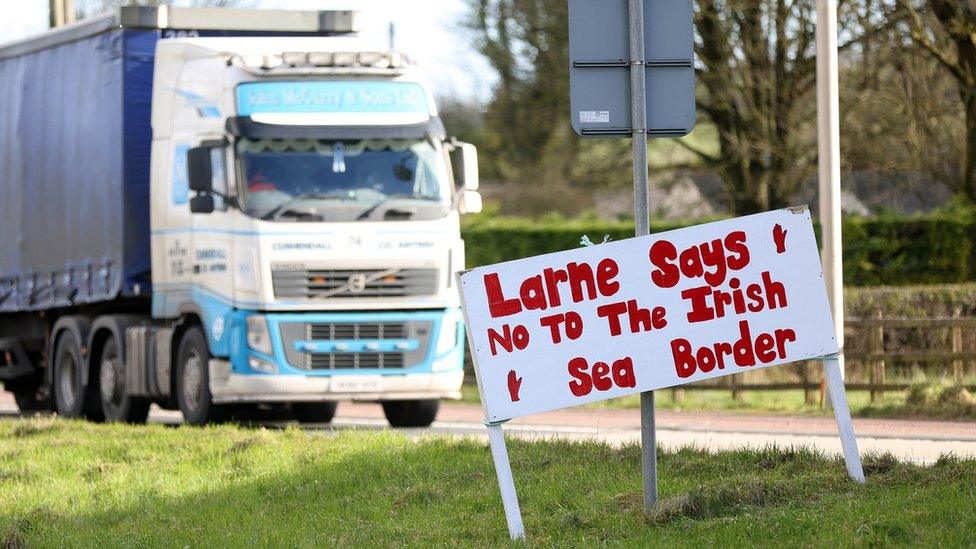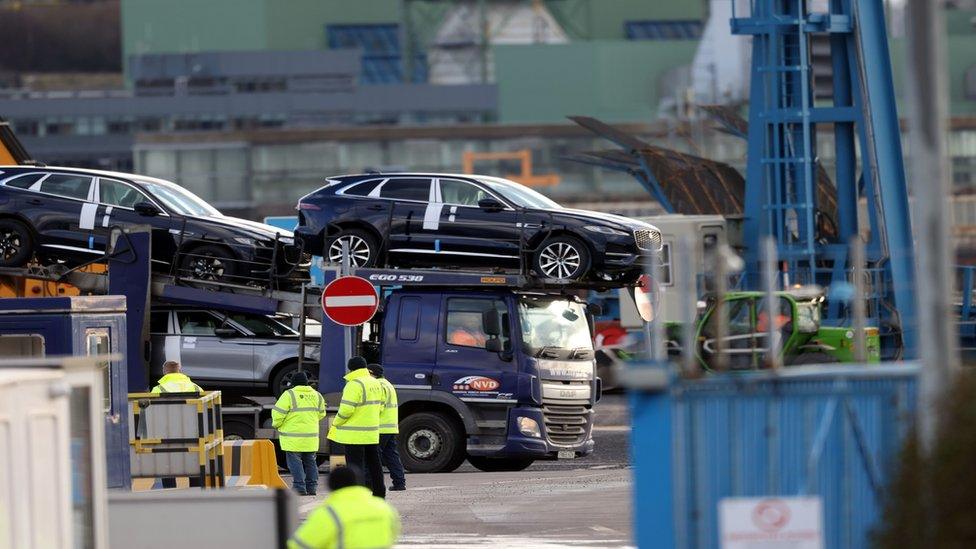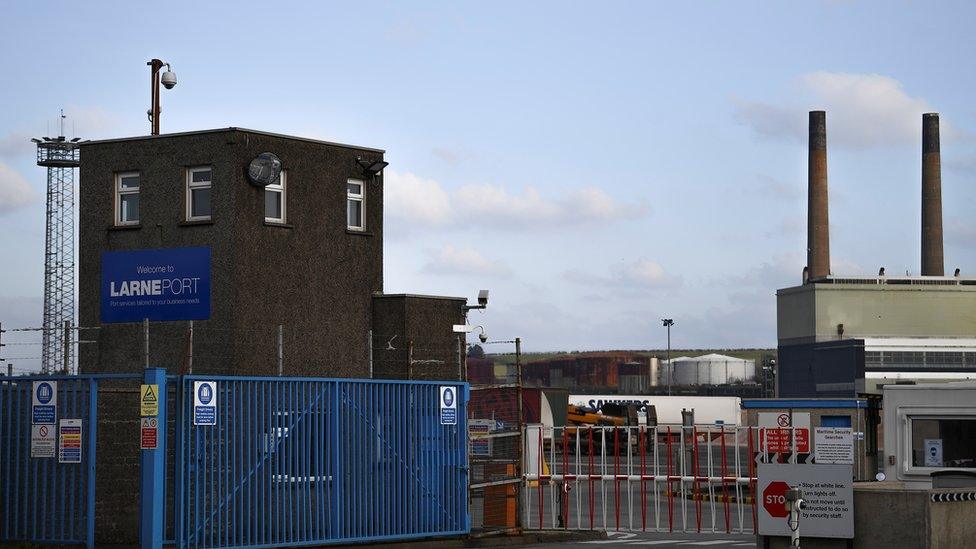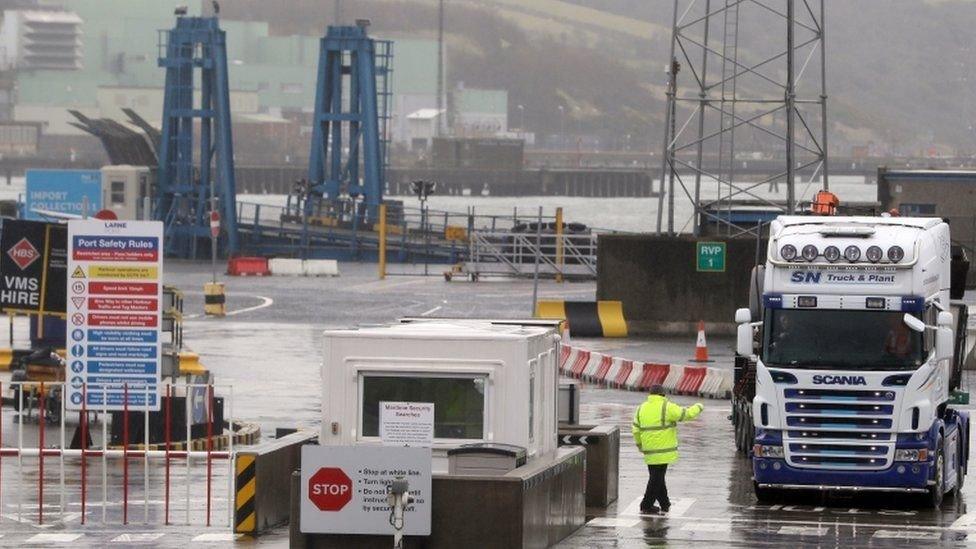Brexit: 'Limited justification' for port staff withdrawal
- Published

There was "limited justification" for the withdrawal of staff from Irish Sea border checks at Larne Port in February, a Stormont committee has said.
Mid and East Antrim Borough Council and Department of Agriculture staff were stood down amid claims of intimidation.
Police said there was no evidence of a "credible threat" against them.
The agriculture committee concluded "the primary driver" for the decision was to protect staff.
Concerns had been raised after graffiti opposing the Northern Ireland Protocol appeared in a number of loyalist areas.
The protocol is part of the UK government's Brexit deal with the European Union and creates a trade border in the Irish Sea.
It keeps Northern Ireland aligned with the EU's single market for goods, ensuring free trade across the Irish border. However, it has led to disruption and additional checks on goods coming from Great Britain in to Northern Ireland.
Unionist leaders have called for the protocol to be scrapped and argued it had created a border in the Irish Sea.
Staff at the Port of Larne's post-Brexit border posts were withdrawn from duty on 1 February.
A week followed until all staff had returned to work.
The Department of Agriculture, Environment and Rural Affairs (DAERA) said its decision to return officials was the result of a "full threat assessment from the PSNI".

Unionists have called for the Northern Ireland Protocol to be scrapped
The committee report "identified multiple factors" cited by the department and the council for why the initial decision was taken.
It noted concerns over graffiti, as well as "an increase in reports of other intimidating behaviour" at the end of January.
"These concerns were compounded by the belief of some senior individuals that paramilitaries were involved in these activities, based on information provided to them by grassroots contacts," the report concluded.
It continued that the Police Service of Northern Ireland (PSNI) was found to have provided "consistent and regular verbal assurances" to stakeholders that "they considered the risk to port staff to be low and that there was no information to substantiate the reports of paramilitary involvement".
'Questions about credibility'
The 75-page report, published on Friday, also took issue with a letter sent by Mid and East Antrim Borough Council (MEABC) chief executive Anne Donaghy to the UK Cabinet Office on 30 January.
During evidence, Ms Donaghy was recalled to the committee after this letter, written on council-headed notepaper, was leaked.
In it, she expressed wider concerns about the protocol, and outlined alleged threats to staff, including that she was "aware of the involvement of paramilitary groups".
She told a committee hearing in April she had written the letter in her role as the Northern Ireland representative of the Society of Local Authority Chief Executives (Solace).
She added that it had not been among information provided to the committee's inquiry as she did not believe it was relevant or had formed any part of the council's decision to temporarily suspend checks.
In the committee's final report, it said the letter should have been "disclosed immediately upon its request for information".
"Some of the inconsistencies in the evidence provided by MEABC officials raise questions about the credibility of actions pertaining to this correspondence," it suggested.
The report made a number of future recommendations, including that "the identity and details of grassroots contacts that provide information to senior officials should be disclosed fully to law enforcement agencies".
It also called for the council to clarify the threat assessment in correspondence with the Cabinet Office and that any staff member who was stood down from their posts "should be informed by their employer that the PSNI's consideration was that the risk to their safety was low and that they had no information to substantiate paramilitary involvement in the activities reported during this time".
- Published10 February 2021

- Published11 March 2021

- Published23 April 2021
